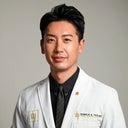Thank you for your question. You are describing you’re 2 months post op after undergoing Asian eyelid surgery and epicanthoplasty, and having difficulty with eye closure. dry eye, and irritation to the point you can’t wear your contact lenses. Your eye doctor prescribed Restasis and lubricating drops. You’re stating your doctor is not taking this very seriously, and is being dismissive. You are questioning whether or not you should be seen by an oculoplastic surgeon for further evaluation.


